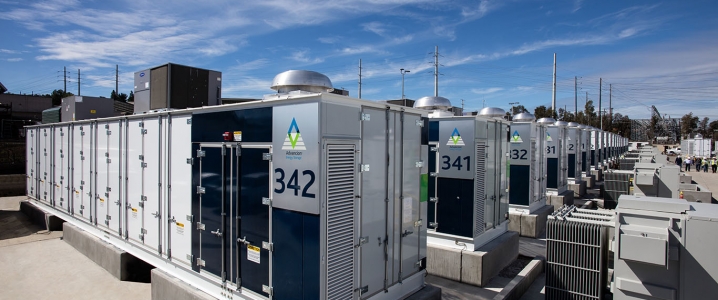Last week, Shell became the latest supermajor to make a big bet on battery storage with the announced acquisition of German energy storage startup Sonnen. Sonnen focuses specifically on household energy storage, a nascent market but one with a huge potential if ambitious renewable power plans by governments around the world work out.
Household energy storage has not garnered as much attention as EV batteries, but it has a bright future as rooftop solar installations become increasingly popular in places like Europe, Australia, and North America and especially as the prices for such household storage installations decline. Yet, as Quartz’ Akshat Rathi notes in a report on Shell’s acquisition, the upfront costs of such installations are still high: the Tesla Powerwall, for example, costs around US$7,800 and that’s excluding installation costs, which can range from US$2,000 to US$8,000.
Despite the drawbacks, however, Shell’s announcement is the latest sign Big Oil is getting increasingly interested in batteries as part of its preparation for a more renewable energy future. Total, another European supermajor, has been expanding steadily in batteries. In 2016, it bought French Saft, a leading developer of batteries for various industries including energy storage, but also transportation and telecoms.
Last year, Total bought a stake in another battery maker, U.S.-based Ionic Materials, as part of a US$160-million investment drive in technology and energy startups. “We have decided to invest in Ionic Materials in order to keep a closer look on this technology which may represent one of the most promising path for the development of solid-state batteries,” the French supermajor said at the time.
Solid-state batteries are a fascinating segment of the battery industry with proponents arguing they can replace lithium-ion batteries with their liquid electrolytes and solve the problems arising from this fact. Ionic Materials has developed a solid polymer battery that addresses the liquid electrolyte issues of lithium ion batteries, chief among them flammability. The battery, according to the company, is also more durable and has greater capacity than lithium ion batteries. In short, solid-state batteries hold significant promise. Related: Oil Prices Near Three-Month High As Market Tightens
BP is also investing in batteries. Last year, the company announced the acquisition of a US$20-million stake in StoreDot, a developer of ultrafast charging battery technology. “Ultra-fast charging is at the heart of BP’s electrification strategy. StoreDot’s technology shows real potential for car batteries that can charge in the same time it takes to fill a gas tank,” BP's downstream operations chief executive said at the time.
Energy storage is unquestionably a high growth potential market. True, costs are for now often prohibitive of mass adoption but this will change as they continue down with the constant improvement of the technology.
This year, Wood Mackenzie expects the global battery storage capacity to expand to almost 8 GWh, with the United States leading the way, accounting for 21 percent of the total growth. South Koreas will be next, with 16 percent, and China will account for 15 percent of storage capacity growth. The growth rate from 2018 is almost double, which suggests the supermajors are on to something: that’s almost twofold growth in capacity despite the high costs and still sparse adoption of renewable installations. Batteries are a growth market and those who enter it earlier on will have an edge over the latecomers.
By Irina Slav for Oilprice.com
More Top Reads From Oilprice.com:


















